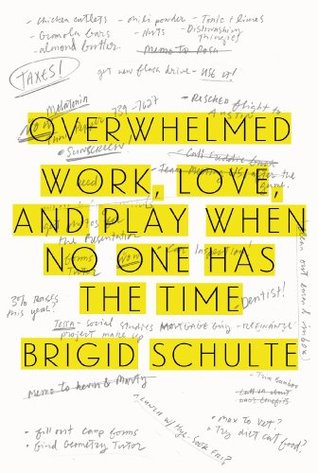More on this book
Community
Kindle Notes & Highlights
Started reading
October 29, 2016
More than ever, families socialize together: Going out to dinner usually means bringing the whole family along. Mothers’ time to themselves and time with adults both dropped by about seven hours a week from 1975 to 2000. Employed mothers’ drops in pure leisure were even steeper: They had nine hours of pure leisure and fifteen hours of total free time.
“What’s missing from this talk about ‘having it all,’” she says, “is the recognition that if it’s left for women to work out for themselves, like it is now, they can’t have it all.
Make time for leisure when the spirit seizes you, no matter what you happen to be wearing.
Some people assert that the busy lifestyle is a personal choice they’d made in order to get ahead or give their kids an edge for the future. Others are resigned, saying they feel obligated to live superbusy and fast, as if swept away on a fast-moving tide. “As if you don’t get to choose, busyness is just there,” Burnett says. “I call it the nonchoice choice. Because people really do have a choice.”
they have found a human “aversion” to idleness and need for “justifiable busyness.”
the group that had busied itself with walking felt happier. “If idle people remain idle,” Hsee wrote, “they are miserable.”
“Work has become central in our lives, answering the religious questions of ‘Who are you?’ and ‘How do you find meaning and purpose in your life?’”
Without time to reflect, to live fully present in the moment and face what is transcendent about our lives, Hunnicutt says, we are doomed to live in purposeless and banal busyness. “Then we starve the capacity we have to love,” he said. “It creates this ‘unquiet heart,’ as Saint Augustine said, that is ever desperate for fulfillment.
It is, perhaps, only human nature to avoid at all costs thinking of life’s ultimate, unavoidable conclusion. Maybe that’s the attraction of busyness, she says. If we never have a moment to stop and think, we never have to face that terrifying truth.
Researchers have found that the way people feel about the stress in their lives is a far more powerful predictor of their general health—whether they’re more likely to be depressed, anxious, smoke cigarettes, or overeat—than any other measure. The perception is more precise, even, than actual stressful life events. In other words, what we think about ourselves and our lives is our reality.
Stress, she said, is no more and no less than the inability to predict and control the forces that shape our lives.


